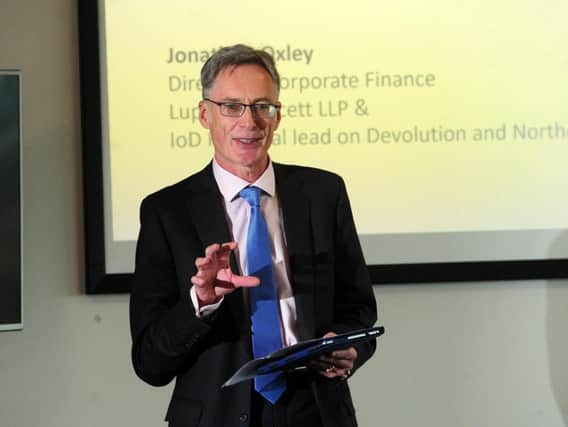Why business is part of the solution to the challenges facing the UK - Jonathan Oxley


A real vote loser arrived through my letterbox last week promising to “make business part of the solution rather than part of the problem”. I am assuming this party doesn’t want votes from those of us in business who are, apparently, “a problem”.
This nonsense had me wondering how many businesspeople there might be amongst our MPs. The answer is more than you might think. According to the House of Commons’ own research published in October 2019, 155 of the 626 MPs from the four main parties in the last Parliament were from a business or commercial occupation immediately prior to the 2017 election.
Advertisement
Hide AdAdvertisement
Hide Ad130 of that 155 were Conservatives, 15 Labour, 6 SNP and 4 Liberal Democrats. In passing, if you think that there are more career politicians in Parliament these days, you would be right. The same report gives a figure of 246.
So, just how big a “problem” is business? Business makes a massive contribution to our economy through taxation. It is right to say that increasing globalisation is challenging traditional systems of taxation and that “forum shopping” to get profits taxed at the lowest rate possible does go on.
International solutions are needed to address this, just as they are needed to address the multitude of other issues arising from rapidly increasing globalisation. However, PWC’s 100 Group Survey Results 2019 reports that the total tax contribution of the 100 group members (representing the biggest companies operating in the UK) was £84.7bn or £11.7bn of total Government tax receipts and those companies also contributed £26.8bn in total capital expenditure in the UK. Of the £84.7bn total tax contribution, £26bn was tax paid by the companies (Corporation Tax, NIC and business rates etc) and £58.7bn was collected on behalf of the Government by way of income tax deductions under PAYE, net VAT etc.
So it might be reasonable to conclude that whilst there are “problems” around big business which need to be addressed, we would have even bigger ones without the tax revenues generated.
Advertisement
Hide AdAdvertisement
Hide AdSmall and medium-sized enterprises (SMEs) comprise 99.9 per cent of businesses by number and they contribute more than half of the turnover of the UK economy.
There were hundreds also paying specific new taxes, such as air passenger duty, landfill tax, climate change levy and the aggregate levy. The UK’s businesses also provide millions of us with purpose, challenge, structure and meaning in our lives although, of course, also a measure of the related stress and pressures.
Most importantly it is evident to me that business is already part of the solution to the challenges of the future and is becoming more so. This is, to some extent, down to the change in perceptions of this generation of business leaders, but more to do with the millennials coming through, who have been described as “a generation of opinionated sceptics”.
A study in 2015 by Core Communications found that millennials are “prepared to make personal sacrifices to make an impact on issues they care about” including “taking a pay cut to work for a responsible company”.
Advertisement
Hide AdAdvertisement
Hide AdThe US economist Milton Friedman’s view that “the social responsibility of business is to increase its profits” is history. Box ticking CSR is also a thing of the past. The coming generation of business leaders will undoubtedly, in my view, be at the heart of meeting the big challenges before us.
Jonathan Oxley is Northern Powerhouse Ambassador at the Institute of Directors